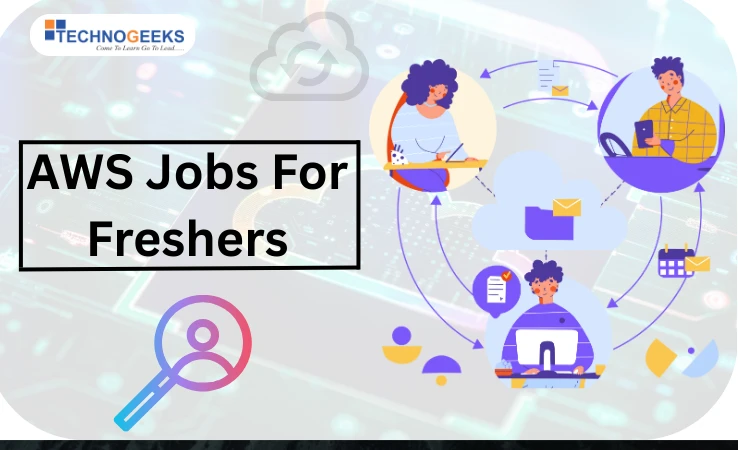Table of Contents
ToggleIntroduction –
SAP technology has become increasingly popular, with more businesses investing in it to improve their operations. As a result, the demand for SAP developers is continuously increasing. SAP is not only popular in India but other countries as well like Europe, Germany, Switzerland, North America, etc.
The reason SAP is popular because it offers solutions for various tasks, like:
- Accounting
- Sales
- Distribution
- Human Capital Management
Additionally, SAP solutions are used across various industries, like:
- Oil and Gas
- Finance
- Logistics
- Government
- Education
- Hospitality
They include applications for –
- ERP (Enterprise Resource Planning)
- Analytics
- CRM (Customer Relationship Management)
- HR (Human resources)
As Companies grow and adopt more technology, they need skilled developers to manage and customize their SAP systems.
This demand is expected to keep increasing in 2024 and continue to do so in the future, making it a good career option for those interested in exploring new technology & advancing their skills in the field of business management.
In this blog, we will explain SAP career, market demand, job opportunities, and skill requirements.
Let’s first understand What is SAP?
Also Read – What are Low-Code No-Code Platforms
What is SAP?
SAP is a Software Application, which stands for “Systems Applications Products”. SAP is basically a tool that does a lot of important tasks, like keeping track of money, sales, and organizing business operations.
SAP has different types of software to help businesses in different industries such as –
- SAP ERP (Enterprise Resource Planning)
- SAP CRM
- SAP HANA
- SAP Analytics Cloud
Also Read – What is Mendix | A Beginners Guide
How SAP Works?
Step 1: Data Collection
The first step is “Data Collection”. In this step SAP collects data from various sources within the organization, such as sales, procurement, production, finance, and human resources, etc.
For Example :
| Data Source | Types of Data Collected |
| Sales | Customer orders |
| Procurement | Inventory levels |
| Production | Inventory levels |
| Finance | Financial transactions |
| Human Resources | Employee records |
Step 2: Data Processing
The Second step is “Data Processing”. Once the data is collected, SAP processes it using predefined business logic and rules.
For example –
| Data Processing Task | Description |
| Calculate Total Revenue | SAP calculates the total revenue generated from sales based on sales data collected. |
| Analyze Inventory Levels | SAP analyzes inventory levels to identify shortages or surpluses and optimize inventory management. |
| Generate Payroll | SAP generates payroll for employees based on their hours worked and pay rates recorded in HR data. |
Step 3: Integration
The third step is “Data Integration”, where SAP integrates data from different sources. One of the best and important features of SAP is its ability to integrate different business processes.
For Example –
| Business Process | Integration Action |
| Customer Orders Book | When a customer orders a book, SAP automatically: |
| – Updates inventory levels to reflect the book’s sale | |
| – Generates a purchase order to restock the book if inventory is low | |
| – Initiates the billing process, sending an invoice to the customer |
Step 4: Reporting and Analysis
The fourth step is “Reporting and Analysis”. In this step SAP provides users with powerful reporting and analytics tools to analyze data and gain insights into business performance.
Users can create customized reports, dashboards, and key performance indicators (KPIs) to monitor trends, identify areas for improvement, and make data-driven decisions.
| Report Type | Description |
| Sales Performance Report | Provides insights into sales trends, top-selling products, and revenue generated. |
| Inventory Analysis Report | Analyzes inventory levels, identifies slow-moving items, and predicts future demand. |
| Financial Statement | Summarizes the financial performance of the organization, including income, expenses, and profitability. |
| Employee Performance Report | Evaluates employee productivity, attendance, and performance against set goals. |
Step 5: Automation
Last but not least is “Automation”. SAP automates repetitive tasks and workflows, reducing manual effort and minimizing errors.
\This can include things like –
- Generating invoices
- Processing payments
- Approving purchase orders
- Scheduling production runs
Also Read – Best IT Courses After Graduation in Pune [Updated 2024]
What Skills are required to become a SAP Developer?
To become a SAP Developer you will need both Technical and Problem Solving skills.
Let’s explore one by one:
1) Programming Knowledge –
You should be familiar with programming languages like –
- ABAP (Advanced Business Application Programming)
- Java Programming
- JavaScript
It all depends on the SAP platform you’re working with.
2) SAP System Knowledge –
It’s important to know how SAP tools work and their different parts. You should be able to move around in SAP applications and know what each part does.
3) Database Skills –
SAP systems use databases to store and get information. Knowing about database systems like SQL (Structured Query Language) can be useful because they help manage this data.
4) Problem-Solving Skills –
As a SAP developer, it’s important to solve problems well. Understanding the issues that come up and finding good solutions is important.
Is SAP a good career now?
Yes, SAP is a good career option and a popular skill in today’s job market, offering many career opportunities worldwide. It’s the most popular ERP software, and many industries and organizations prefer it.
SAP offers good career opportunities, especially if you’re really good at finance, supply chain, HR, or data analytics. These fields are super popular in SAP, offering lots of chances to grow your career and make good money.
Also, instead of just focusing on basic coding, like SAP ABAP, explore other technologies, like SAP BI or the SAP mobile platform (FIORI).
Job Opportunities in SAP?
SAP offers different types of jobs for different skills and interests. Some Job Roles in SAP are –
SAP Consultant :
Consultants work with clients to understand their business requirements and implement SAP solutions customized to their needs. Their main focus is on specific skills such as Finance (FI), Human Capital Management (HCM), Supply Chain Management (SCM), etc.
As per Glassdoor Report, SAP Consultant Salaries in India range between 5 – 12 LPA.
Note: Salary depends on location, experience, company and skills.
SAP Developer :
Developers design, develop, and customize SAP applications and solutions using programming languages like ABAP (Advanced Business Application Programming) or Java.
As per Glassdoor Report, SAP Developer Salaries in India range between 11 – 18 LPA.
Note: Salary depends on location, experience, company and skills.
SAP Business Analyst:
Business Analysts connect business needs with technical solutions. They study business processes, collect requirements, and suggest SAP solutions to boost efficiency and productivity.
As per Glassdoor Report, SAP Business Analyst Salaries in India range between 5 – 13 LPA.
Note: Salary depends on location, experience, company and skills.
SAP Functional Consultant:
Functional consultants focus on setting up and adjusting SAP modules to fit a business’s needs. They work with clients to understand what they want and offer solutions that follow SAP’s guidelines.
As per Ambition Box Report, SAP Functional Consultant Salaries in India range between 2.4 – 13 LPA.
Note: Salary depends on location, experience, company and skills.
SAP Technical Consultant:
Technical consultants handle the technical side of SAP, like setting up systems, moving data, and connecting with other systems. They’re experts in SAP technology, fixing any technical problems that come up.
As per Ambition Box Report, SAP Technical Consultant Salaries in India range between 3 – 15.5 LPA.
Note: Salary depends on location, experience, company and skills.
SAP System Administrator:
System administrators manage and maintain SAP systems, including installation, configuration, monitoring, and performance tuning. They ensure system reliability, security, and compliance with industry standards.
As per Ambition Box Report, SAP System Administrator Salaries in India range between 3 – 11.6 LPA.
Note: Salary depends on location, experience, company and skills.
Conclusion –
Choosing a career in SAP is a great move. SAP consultants earn good salaries as compared to other ERP roles. Starting early in SAP means more growth opportunities. Companies prefer young, energetic SAP candidates, so deciding on SAP early sets you up for a bright future.
If you want to learn SAP from industry Experts?
Contact Us +91 8600998107 / +91 7028710777 For more information.















